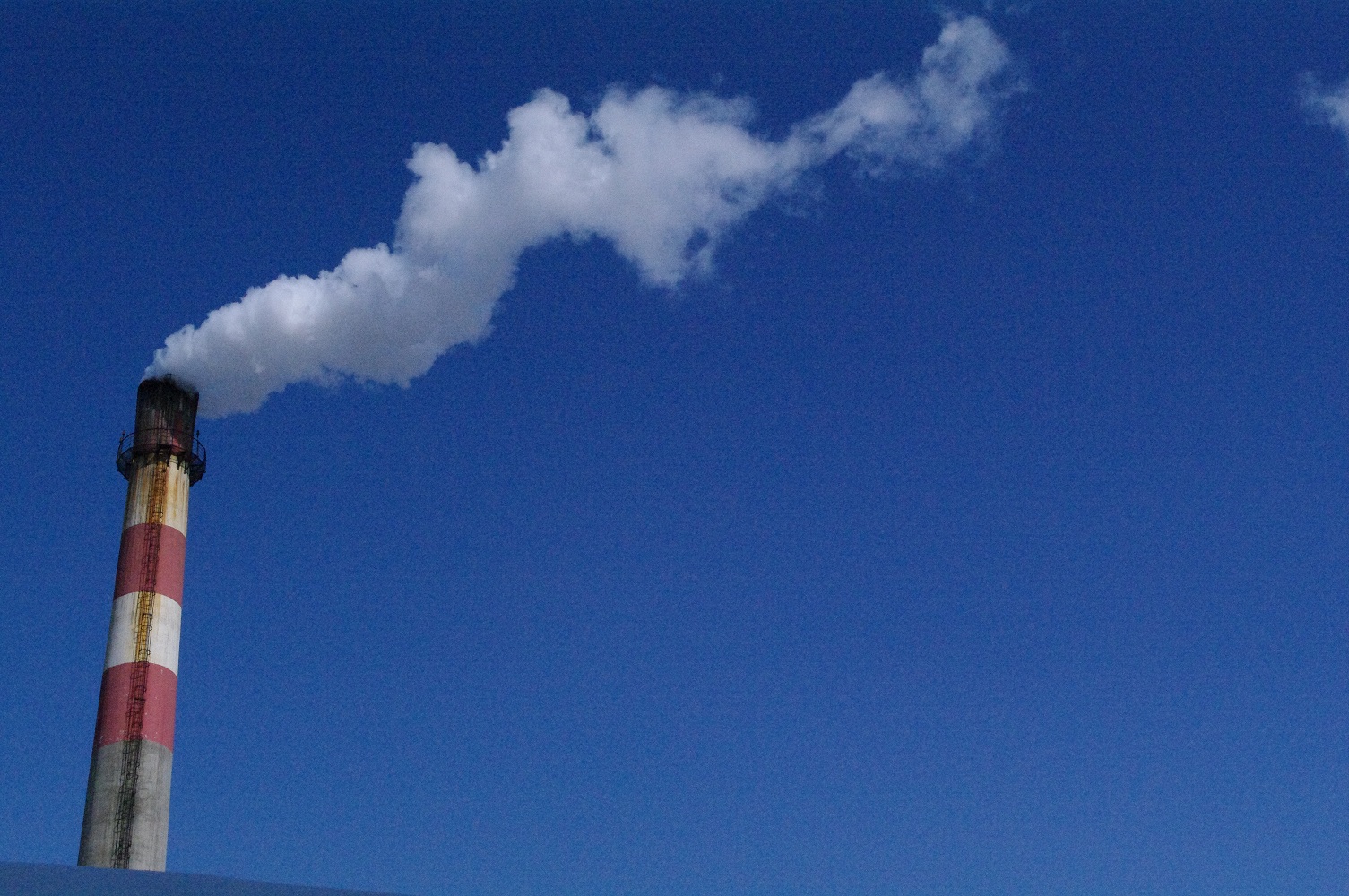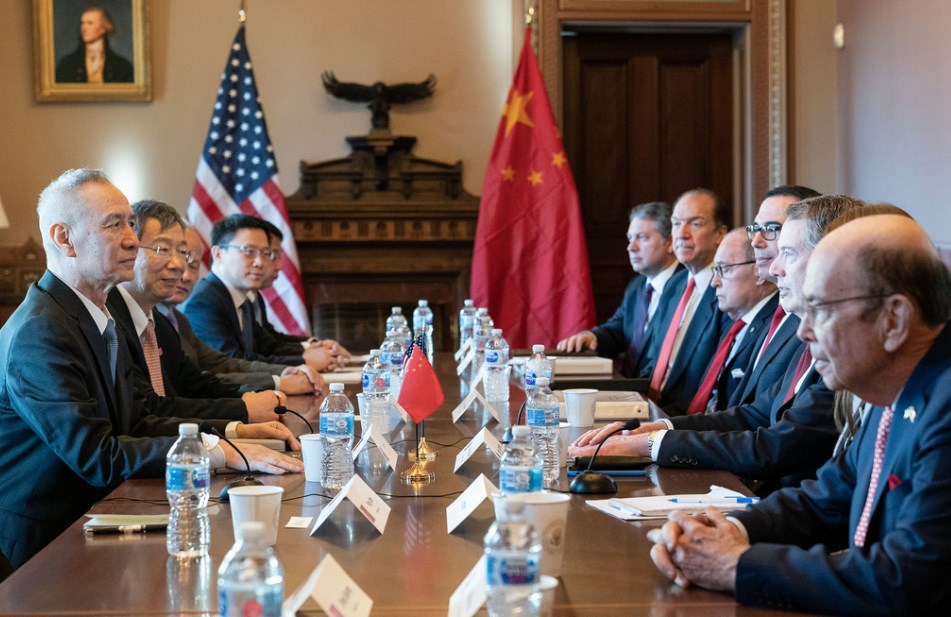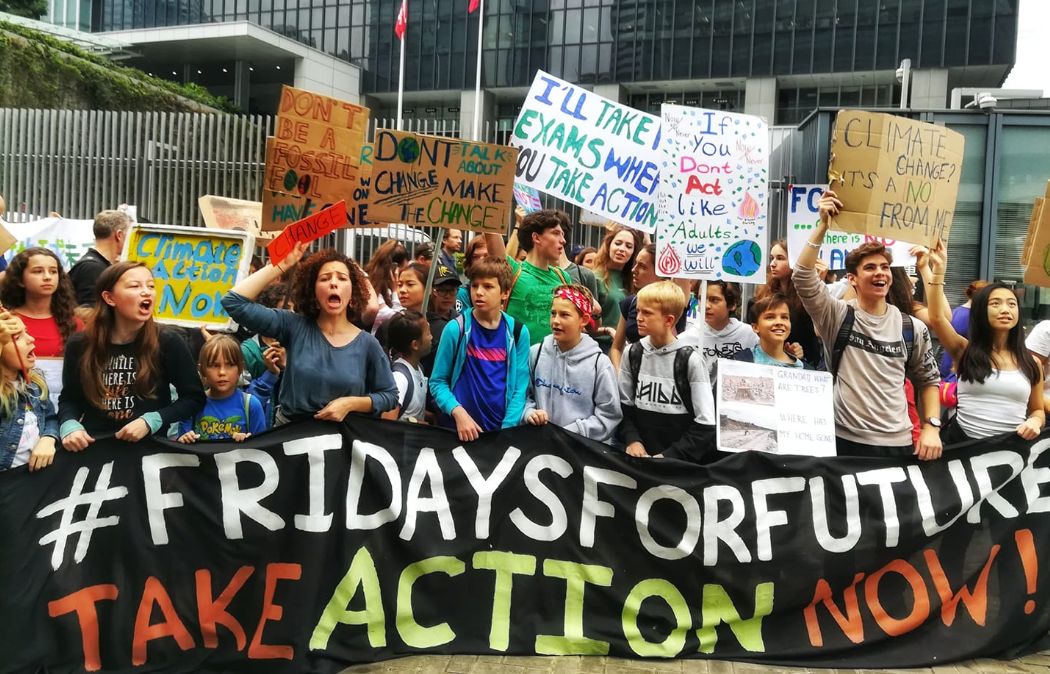China’s unprecedented rise over the last four decades has enormous implications for the world. Some of those implications are potentially catastrophic.
Predicting its long-term effect on global development, freedom and national security is difficult. There is much reason to worry as more developing countries have trouble repaying Chinese loans, Beijing eviscerates long-held freedoms in Hong Kong, and the People’s Liberation Army sets its sights on Taiwan.

But there’s one aspect of China’s rise – undoubtedly the most damaging in the long-term – of which we can be absolutely certain: the devastating consequences of its enormous contribution to global warming and climate change. Whether and how Beijing reacts to the climatic consequences of its historic rise may determine the fate of life on earth as we know it.
Next month’s COP26 climate change summit in Glasgow cannot succeed without concerted and rapid action by China to address its role in the climate crisis. That’s because it is by far the largest national source of the emissions of carbon dioxide (CO2) and other greenhouse gases that are driving global warming and the many adverse manifestations of climate change – wildfires, droughts, heatwaves, melting icecaps, more intense storms, floods, ocean acidification and much more.
China produces well over a quarter of global greenhouse gas emissions – two and a half times those of the second highest emitter, the United States. Its emissions exceed the total of the European Union, Japan, the United States and all other developed nations put together. A major reason is its reliance on fossil fuels for energy, especially coal. Well over 80 percent of China’s energy comes from fossil fuels, a reliance that has barely changed since at least the mid-twentieth century. Three-fifths of all energy in China comes from coal and more than half of the world’s coal consumption occurs in China.
And the problem is only growing worse. Scientists are increasingly shrill in their calls for governments to reduce global greenhouse gas emissions, and fast, but those emissions are still increasing. Nearly all of the increase is from the developing world, and the vast bulk of that is from China.
The exception to this growth trend occurred during the 2020 Covid-19 pandemic, when global emissions fell slightly – but not in China. This fits a pattern: China’s greenhouse gas emissions have skyrocketed in recent decades, tripling over the last three decades and expanding by about a quarter in the last decade alone.
President Xi Jinping has promised that China’s coal consumption will peak by 2025 and that its total greenhouse emissions will stop rising by 2030. While some observers may view such pronouncements favourably, the worrying truth behind them is that – despite all the evidence that reducing emissions without delay is essential to limit global warming – the largest polluter of the global atmosphere plans to continue increasing that pollution throughout this decade and expects to take nearly four decades to zero out its carbon emissions. This is a formula for climate disaster.

What is more, Xi’s pledge to reduce the use of coal belies what is happening across his country. Despite Beijing’s push to reduce coal consumption, local governments and industries reliant on ready access to energy are putting up resistance. Construction of coal-fired plants is, if anything, accelerating to beat the 2025 deadline. New coal-fired power stations are currently being built in more than 60 locations across China. Plans are currently in place for 247 gigawatts of new coal-fired power – six times the current total capacity of Germany. Last year, China’s coal-fired power capacity increased by more than 38 gigawatts, triple the increase across the rest of the world.
The evidence is clear: the momentum behind China’s growing carbon emissions is hardly waning. If anything, it is still building steam. To be sure, China leads the world in the deployment of alternative forms of energy, notably wind and solar, and plans to expand its fleet of nuclear power plants (which, despite their potential ecological and safety drawbacks, produce power at all hours without directly emitting CO2 pollution). But, so far, China’s push for green energy has been too little, too late.
But it’s not just China’s total greenhouse gas emissions that are problematic. As the country has become wealthier, so have its people. The result has been growing per capita emissions, which have tripled over the last two decades and are now nearly equal to the developed-world average. While China’s per capita CO2 emissions are half those of the United States, they are about the same as Germany’s, well above the United Kingdom’s, more than triple those of Brazil, three and a half times India’s and many times those of the least-developed countries (28 times those of Afghanistan, for example).

These per capita averages hide variations within countries, including China. Currently, millions of Chinese people pollute Earth’s climate system as much or more than do millions of Americans and most Europeans. High-end polluters in Beijing and Shanghai are role models for hundreds of millions of less well-off Chinese people. This means that future efforts to reduce China’s total emissions will struggle as more people aspire to live like their affluent compatriots.
The enormity of greenhouse gas pollution coming from China, alongside the country’s continued heavy reliance on fossil fuels, means it is very unlikely to make pledges at the Glasgow summit that will satisfy most other countries, least of all the poorest among them that are worst hit by climate change, least responsible for causing it and the most lacking in the resources to adapt. These are the same countries whose calls for climate justice were championed by China, in words if not in deeds, over three decades of negotiations. Not any more.
Much of the work at Glasgow will involve trying to persuade more countries to reduce their greenhouse gas emissions enough to achieve the 2015 Paris Agreement’s target of limiting the rise in global warming to 1.5°C, a point beyond which scientists predict all hell will break loose. China’s share of climate-changing pollution is probably so high that the Paris objective cannot be met without rapid action by Beijing to reduce its emissions. All indications are that the economic and political costs for China of doing so are perceived by the country’s leadership as being too high. Alas, China is not alone in making such a calculation.
If the Glasgow summit is to be a success, diplomats and leaders from countries of all stripes will have to use all of the charm that they can summon, and pile on all of the pressure that they can muster, to persuade China to reverse course. When it comes to global warming and climate change, as China goes, so goes the world.
Support HKFP | Policies & Ethics | Error/typo? | Contact Us | Newsletter | Transparency & Annual Report | Apps
| HKFP is an impartial platform & does not necessarily share the views of opinion writers or advertisers. HKFP presents a diversity of views & regularly invites figures across the political spectrum to write for us. Press freedom is guaranteed under the Basic Law, security law, Bill of Rights and Chinese constitution. Opinion pieces aim to point out errors or defects in the government, law or policies, or aim to suggest ideas or alterations via legal means without an intention of hatred, discontent or hostility against the authorities or other communities. |
Help safeguard press freedom & keep HKFP free for all readers by supporting our team

More HKFP OPINION:
HKFP has an impartial stance, transparent funding, and balanced coverage guided by an Ethics Code and Corrections Policy.
Support press freedom & help us surpass 1,000 monthly Patrons: 100% independent, governed by an ethics code & not-for-profit.










